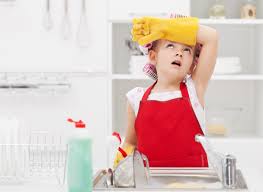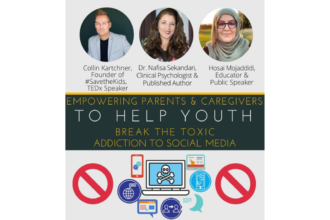Children: The Importance of Having Household Chores

Original Source: Jessica Lahey, PBS.org
“Parents today want their kids spending time on things that can bring them success, but ironically, we’ve stopped doing one thing that’s actually been a proven predictor of success—and that’s household chores,” -Richard Rende
Household participation is the first, and I’d argue essential, step toward building a purpose-driven and fulfilling life for our children. Purpose is what saves us all from despair when the details of life become overwhelming or boring, and it is what fuels the determination, resourcefulness, and resolve that will see our children through to their goals. There are a lot of reasons parents give for not granting their children the space and opportunity to find purpose, among them:
- It’s faster if I do it myself.
- They will just do it wrong anyway.
- Kids should be kids while they can; they will work when they grow up.
- My house will look disgusting and people will judge me.
- My kids will look disgusting and people will judge me.
Enough. It’s time to grant our kids the opportunity to contribute. Allow them to step up, try, fail, and try again until they get it right.
As your child discovers his significance and purpose, it’s important to keep in mind that he’s going to fail. He’s going to make a mess of things from time to time as he learns. His contribution to the household is not simply an item on a checklist you post on the refrigerator, but a process, an education. You know how to fold laundry just the way you like it folded; your son does not. Let him muck it up the first couple of times; give him the opportunity to notice that his folded shirts look different than the other ones in his drawer. Let his sister get frustrated with him because her pants are inside out and damp because the dryer twisted the leg in a knot.
Let your child discover for himself that when he leaves the clothes in the dryer overnight, his favorite shirt becomes hopelessly wrinkled, and maybe next time, he won’t let that happen. Your house might be a little less perfect than usual as he learns how to become useful, and your kids may have to go out in public wearing those damp pants and wrinkled shirts. Eventually he’ll become competent in the details of doing the laundry, not just to completion, but well. Given enough time, and lots of opportunities, he may even figure out how to fold a fitted sheet.
The key to successfully instilling a sense of responsibility and pride, and helping children understand that they have a role to play in the family dynamic, is to start young. Even toddlers can begin to explore their ability and competence in shared household responsibilities. When dealing with younger children be sure to make your expectations clear and age-appropriate.
Here are some examples of the kinds of tasks toddlers can take on:
- Put their dirty clothes in a basket or hamper.
- Dress themselves (with clothing that’s not too complicated).
- Fold simple items of clothing or linens such as pillowcases or washcloths.
- Put their clothes away in drawers.
- Follow two- or three-step directions in order to complete tasks (get your toothbrush, put toothpaste on it, brush your teeth).
- Throw trash and recycling away in the proper place.
- Put toys away in tubs and baskets when they are done playing with them.
- Get out and put away their dishes as long as you arrange their cups and bowls on a low shelf.
- Feed the dog or cat.
As children graduate from toddlerhood and move toward preschool, start teaching them how to manage more complicated duties. Kids between three and five are big fans of counting and sorting, so give them jobs around the house that encourage them to practice these skills while instilling responsibility. Ask them to put five books on the shelf, or ask them to count out five oranges and place them in a bag at the store. Kids this age are perfectly able to:
- Make their bed.
- Straighten their room.
- Sort and categorize items, such as utensils in a drawer, or socks in the laundry.
- Water plants.
- Clear their place at the table.
- Clean up spills with a towel or sponge.
- Prepare their own snacks.
It’s never too early—or too late—to teach children how to contribute and problem-solve under their own power. Despite all the protests to the contrary, kids want to play a useful role in their family’s success. We owe them the patience and time it takes to provide that purpose and responsibility. Sure, this will be a challenge, but it will also be worth it — both in the short and long term.
As an added bonus, the stories about the time the washing machine foamed over because your son used dish soap in the place of laundry detergent, and the afternoon you all worked together to solve some “funny-in-retrospect” family emergency, will be the tales you weave in and out of your holiday celebrations over a lifetime. Better to understand now that perfection is not what holds a family together; the bond forged through shared struggle is what endures over the long haul.
Jessica Lahey is an educator, writer, and speaker. She writes “The Parent-Teacher Conference” advice column for the The New York Times, is a contributing writer to The Atlantic, and is a commentator for Vermont Public Radio. Jessica currently teaches high school English and writing, and lives in New Hampshire with her husband and two sons. Her book, The Gift of Failure:How the Best Parents Learn to Let Go So Their Children Can Succeed will be published by Harper Books on August 11, 2015.
